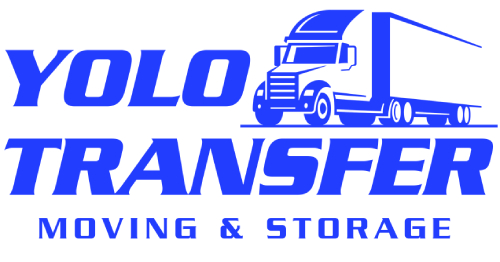Moving Industry Trends 2021 – Sacramento, CA
As you prepare for your move, like so many thousands of other people across the United States, you may be surprised at how difficult it is to find a moving company that can easily accommodate your needs.
There are many reasons why this is the case. Moving companies are struggling to keep up with demand for a few reasons:
- June-August remains the busiest time of year for moving individuals and families.
- Moving companies looking to buy new trucks and other essential moving supplies are finding little luck.
- Industry-wide labor shortages are debilitating local and independently-owned moving companies.
- Major slowdowns around ports and US customs restricting access to people looking to move and ship their items.
We put together this guide to highlight the challenges that moving companies are having to overcome to be successful.
Effects of Under-Employment on Professional Moving
Wages for non-managerial employees were raised 14% nationally in 2021 according to the Washington Post. Despite this, COVID-19 and other factors have contributed to a decline in the amount of available workers for moving companies. The result is that many moving companies simply do not have the staff required to take on too many jobs.
A story that was posted in the Wall Street Journal featuring the story of California natives Debora and Brian Roland shows an example of the troubles that naturally come from moving companies being short-staffed. The movers they hired promised their move will be completed in 6-12 days, and yet they were still waiting on their chance to move 4 weeks later.
It’s clear that the moving industry is overbooked and undermanned. Be mindful of this as you plan future moves throughout 2021 and possibly beyond.
Peak-Season and Off-Season
There is a consistent peak-season when it comes to moving; the summer. It may have to do with the great weather and it may have to do with families not having to deal with school or maybe it has to do with the holidays taking up so much time in the winter. Whatever the reason, June through August moves can get scheduled as early as May due to high demand.
Because of this, moving and storage professionals consistently recommend scheduling your move during the off-season.
Here are some of the benefits of scheduling your move between September and April:
- Stress-free moves are more common because moving & storage companies are not as booked during this timeframe.
- Customers typically enjoy saving upwards of 20-30% on moving costs due to less demand, although that may not be true in the next 12 months.
- More dates are available to choose from, meaning more flexibility for you.
Of course, there are times where you absolutely have to move during peak season. As you search for a moving company that has available time slots, be sure to do plenty of research:
- Check reviews on trusted review sites like Google and Yelp.
- Customer service representatives are available to answer all of your questions from start to finish.
- When you provide moving companies a comprehensive inventory of items needing to be moved it can greatly improve the accuracy of the quote you receive.
The Department of Consumer Affairs reported more than double the amount of mover-related complaints between March and December of 2020 than it did compared to the same period in 2019. That’s why researching your moving company, especially when you’re looking through so many during peak season, is so important. These complaints include:
- Moving companies that take your money and then don’t complete the move
- Moving companies that hold your stuff hostage until you pay an exorbitant fee for unfinished services
- Moving companies give you a super-low estimate to get your business, then overcharge you upon delivery.
Keep in mind when contacting companies, an estimate is simply a contractor’s best guess as to how much the move will cost compared to a quote which is binding. Do proper research to avoid hiring the wrong moving company for you.
Damaged Supply Chain
An important key to a moving company is their moving fleet. That being said, it can be a disaster if something goes wrong with their moving trucks, and right now, many moving companies are struggling to get their fleet in order.
New trucks that are being built are sitting in a lot, not completed, because they have to wait to get a needed computer chip. Here in California, there are new regulations due to pollution by the California Air Resources Board that states that by 2023, all trucks and busses operating in California must have engines that are at least a 2010 year model. That means many moving companies are all scrambling at one time to get moving trucks at the same moment that manufacturers are dealing with a chip shortage.
There are also a ton of people moving out of California. In fact, according to MoveBuddah, California dropped in population between January 2020 and January 2021 for the first time in the state’s recorded history.
There are logistical struggles that come with more people moving out than in. Many moving trucks end up making empty return trips back to California with nothing on them.
Be mindful that moving companies are committed to providing you the best moving experience possible. If you’ve hired a moving company that is experiencing logistical struggles, it’s important to be considerate of their challenges.
COVID’s Impact on Borders and Ports
People will always move internationally. There are a ton of reasons for this, including:
- New employment opportunities
- Moving back home to be closer to family
- Personal development and growth by experiencing other cultures
- Retirees moving to their dream home outside the United States
With all of these reasons, COVID-19 still hasn’t stopped people from making international relocations. However, it has had an impact on how we move internationally.
As a direct result of the Coronavirus, ports and international borders have experienced slowdowns in the United States. Meanwhile, other countries such as China, Canada, and Australia, among others, have implemented restrictive measures on both ports and harbors, as well as border crossings. This is all done with the intent of slowing down the spread of COVID-19.
When moving internationally, be sure to look into and understand the rules that you may have to go through and the slow-downs that you may face. Our advice is to be patient, both with the moving company that you are working with as well as with the workers of the border agency that you have to interact with. These issues are out of their hands.
Final Thoughts
It’s clear that all movers are experiencing similar issues related to:
- Being understaffed
- Handling peak season volume
- Supply chain management
- Restrictive border and port entry.
As you plan for your move, keep this in mind. Moving companies aren’t asking you not to request a quote or express interest, instead the best response to this is to begin scheduling your move as far in advance as possible. This will make it more likely that you get a good date.








